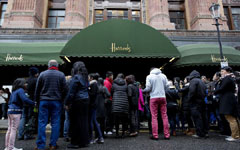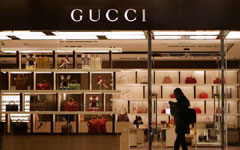"Regarding Garnier and others, their exits are simply that there are always going to be winners and losers in a competitive market. China's market is even more competitive than that in the US," she said.
According to Sun, emphasizing the foreign origin of a company might have helped international brands capture Chinese consumers in the early years when the Chinese market opened up.
|
 |
|
 |
|
 |
Young recalled a time in the 1980s, when she was involved in development of General Motors' $1.5 billion joint venture in Shanghai.
"We had a smart financial idea, which is that we could sell the Chinese an existing product and appliance. It would be at very low cost, very safe and well-tested and ahead of the China market by 10 years. But the Chinese did not want that. They said then we will always be behind.
"You have to understand that part of the Chinese mentality. If they are going to pay, they want the best," said Young. "If they buy a Cadillac, a high-end car, it's obviously more than functions they are paying for. They need to feel it is technologically the best in every way, and that's how the brand is going to project itself."
Many luxury brands in China are still sales-oriented and profit-driven in terms of brand building, marketing strategies and customer service, Sun said. "What they should be doing, however, is careful planning, including understanding what Chinese customers want, cultivating purchasing habits, educating on brand heritage and offering customized services."
Sun's observations were echoed in the 2014 China Luxury Forecast conducted by Ruder Finn Public Relations and Ipsos Group.
The study revealed that Chinese consumers primarily attributed their decisions to shop overseas to experiencing poor customer service and staff knowledge in their home country. Dissatisfaction with brands' services at home was reported by 92 percent of consumers from China, according to the study.
"Five years ago, you'd see people lined up in front of the Louis Vuitton store at Plaza 66 in Shanghai. Today, it's no longer the case," said Jessica Tu, chairman and CEO of the Luxury Marketing Council China.
"The taste of Chinese luxury consumers is gaining sophistication with remarkable speed, but the luxury retailers seem slower in catching up," said Tu.
"For example, customer-service policies in China are not equivalent to those in the US. Some boutique stores in China do not accept returns, citing reasons such as for fear of receiving counterfeit returned items, which will most certainly discourage luxury buyers."
According to a 2012 survey of Chinese luxury customers conducted by McKinsey & Co, two-thirds of the respondents agreed or strongly agreed that they prefer luxury items that are "low-key and understated," up from 50 percent two years ago.
